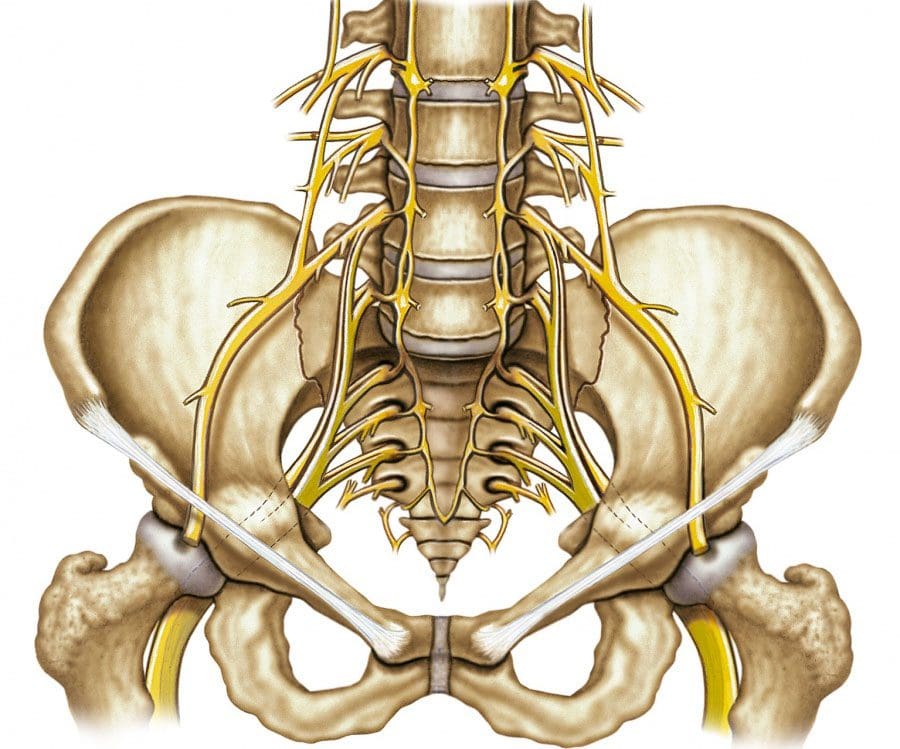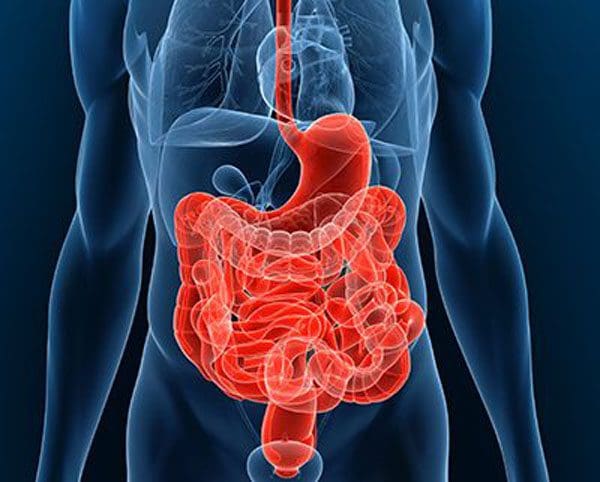
Understanding Acid Reflux: Waking Up with Heartburn
Individuals who wake up with a burning feeling in the chest or throat, along with a bitter taste, more than likely are experiencing morning or waking heartburn. Can simple steps, like not having any food three hours before going to bed, help prevent heartburn when waking up?

Waking Up With Heartburn
Heartburn is characterized by a burning sensation in the chest and neck and an acidic, bitter taste. It occurs when stomach acid flows into the esophagus tube that connects the throat to the stomach and often happens when lying down. Heartburn is a symptom of acid reflux, a digestive disorder that occurs when the stomach contents back up into the esophagus. Waking up with heartburn throughout the night or when waking in the morning is common during pregnancy and after drinking alcohol. (UCSF Health, 2024) But chronic acid reflux can also be a sign of a health condition like gastroesophageal reflux disease (GERD) and hiatal hernia, or another condition may cause it and can be triggered by stress, certain foods, and other factors.
Causes
Having occasional heartburn is normal. However, frequently waking up with heartburn may indicate gastroesophageal reflux disease (GERD). Other possible causes of this condition and factors that may contribute to frequently waking up with heartburn include: (National Library of Medicine, 2023)
- Increased stress
- Wearing belts or clothes that are tight around the waist.
- Medications include sedatives, bronchodilators, beta-blockers, calcium channel blockers, and tricyclic antidepressants.
- Pregnancy
- Hiatal hernia – the top area of the stomach pushes through an opening in the diaphragm.
Sleeping and Heartburn
Research shows a relationship between sleep disorders like insomnia and an increased risk of acid reflux (Qin S. et al., 2023). A study of over 6,000 people found that those who woke up less often during the night were 50% less likely to experience heartburn than those with disrupted sleep.
Symptoms
Symptoms can include: (Johns Hopkins Medicine, 2024)
- A burning sensation in the chest that can last from minutes to hours
- Pain in the chest when lying down or bending
- Burning sensation in the throat
- A hot, acidic, and/or salty sour taste in the back of the throat
Along with these symptoms, individuals who have GERD may also experience: (National Institute of Diabetes and Digestive and Kidney Disease, 2020)
- Chronic cough or hoarseness
- Pain and difficulty swallowing
- Nausea
- Chest pain
When symptoms are constant, it’s important to see a healthcare provider.
See a Healthcare Provider
If heartburn persists long-term, it can lead to inflammation, breathing problems, and narrowing of the esophagus. Seeing a healthcare provider is recommended if lifestyle adjustments don’t help or symptoms continue despite taking over-the-counter antacids. Other symptoms that need professional diagnosis include: (National Institute of Diabetes and Digestive and Kidney Disease, 2020)
- Chest pain or difficulty breathing, like wheezing or hoarseness
- Loss of appetite, nausea, vomiting
- Unexpected weight loss
- Difficulty swallowing
- Signs of blood in the digestive tract or stool
Tell a healthcare provider when and how you are experiencing symptoms. It may be helpful to keep a journal of frequency, specific symptoms, times when waking up with heartburn, what foods and the time of day when eating, and any other information.
Heart Attack Symptoms
Heartburn can feel like the chest pain associated with a heart attack. See a healthcare provider if you’re unsure if your heart or digestive system is causing the discomfort. Seek emergency medical attention if you have any of the following (American Heart Association, 2022)
- Squeezing pressure, fullness, or pain in the center of the chest that lasts several minutes or stops and returns
- Shortness of breath with or without chest pain
- Pain in either or both arms, the back, neck, jaw, or abdomen
- Other signs include lightheadedness, nausea, and breaking out in a cold sweat
Diagnosis
A healthcare provider can diagnose heartburn and related conditions based on the following (UCSF Health, 2024)
- Discussing symptoms
- X-rays, or imaging tests, that look at the esophagus, stomach, and small intestine
- An esophageal pH monitoring test that checks how often and how long stomach acid stays in the esophagus
- An upper endoscopy procedure where a small tube with a camera is inserted down the mouth to examine the esophagus and stomach
Prevention
Making a few lifestyle changes can reduce waking up with heartburn (National Institute of Diabetes and Digestive and Kidney Disease, 2020)
- Elevate body when sleeping
- Stop eating at least three hours before going to bed
- Lose weight
- Avoid spicy, high-fat, and acidic foods
- Limit coffee and other forms of caffeine
- Avoid carbonated drinks and alcoholic beverages
Staying hydrated helps with overall digestion. However, drinking too much water at once can make heartburn worse. Drinking small amounts throughout the day and avoiding sparkling water is recommended since carbonated drinks can trigger heartburn. (Harvard Health Publishing, 2023)
Treatment
There are various over-the-counter and prescription medications for heartburn. (National Institute of Diabetes and Digestive and Kidney Disease, 2020) Be sure to discuss the risks and benefits of the medicines with your healthcare provider. Heartburn treatments include:
Antacids
- These oral over-the-counter medications help relieve symptoms of mild heartburn and GERD.
- They should not be used daily or for severe symptoms as they can cause side effects like diarrhea or constipation.
H2 Blockers
- Histamine-2 receptor antagonists – These medications reduce the stomach’s acid to help promote healing in the esophagus.
- H2 blockers are available over-the-counter and by prescription.
Proton Pump Inhibitors (PPIs)
- These medications, available over-the-counter and by prescription, reduce acid and help heal the esophageal lining in individuals with GERD.
- They are often used for long-term treatment.
If medication and lifestyle changes don’t help, a healthcare provider may recommend surgery to strengthen the valve between the esophagus and stomach. (National Institute of Diabetes and Digestive and Kidney Disease, 2020)
Injury Medical Chiropractic and Functional Medicine Clinic
Lifestyle and dietary changes, as well as medications, may be used to treat the condition. See a healthcare provider if your heartburn is persistent or accompanied by other symptoms. A healthcare provider can determine the most effective treatment strategies. Injury Medical Chiropractic and Functional Medicine Clinic works with primary healthcare providers and specialists to develop an optimal health and wellness solution. We focus on what works for you to relieve pain, restore function, prevent injury, and help mitigate issues through adjustments that help the body realign itself. They can also work with other medical professionals to integrate a treatment plan to resolve musculoskeletal problems.
Functional Medicine’s Influence Beyond Joints
References
UCSF Health.(2024). Heartburn. www.ucsfhealth.org/conditions/heartburn
National Library of Medicine. (2023). Heartburn. Retrieved from medlineplus.gov/ency/article/003114.htm
Qin, S., Wang, C., Wang, X., Wu, W., & Liu, C. (2023). Causal association of gastroesophageal reflux disease with obstructive sleep apnea and sleep-related phenotypes: a bidirectional two-sample Mendelian randomization study. Frontiers in neurology, 14, 1283286. doi.org/10.3389/fneur.2023.1283286
Johns Hopkins Medicine. (2024). Gastroesophageal Reflux Disease (GERD). www.hopkinsmedicine.org/health/conditions-and-diseases/gastroesophageal-reflux-disease-gerd
National Institute of Diabetes and Digestive and Kidney Disease. (2020). Symptoms and causes of GER & GERD. Retrieved from www.niddk.nih.gov/health-information/digestive-diseases/acid-reflux-ger-gerd-adults/symptoms-causes
American Heart Association. (2022). American Heart Association. Heartburn or Heart Attack? www.heart.org/en/health-topics/heart-attack/angina-chest-pain/heartburn-or-heart-attack
Harvard Health Publishing. (2023). 9 at-home treatments for acid reflux. www.health.harvard.edu/newsletter_article/9-ways-to-relieve-acid-reflux-without-medication












